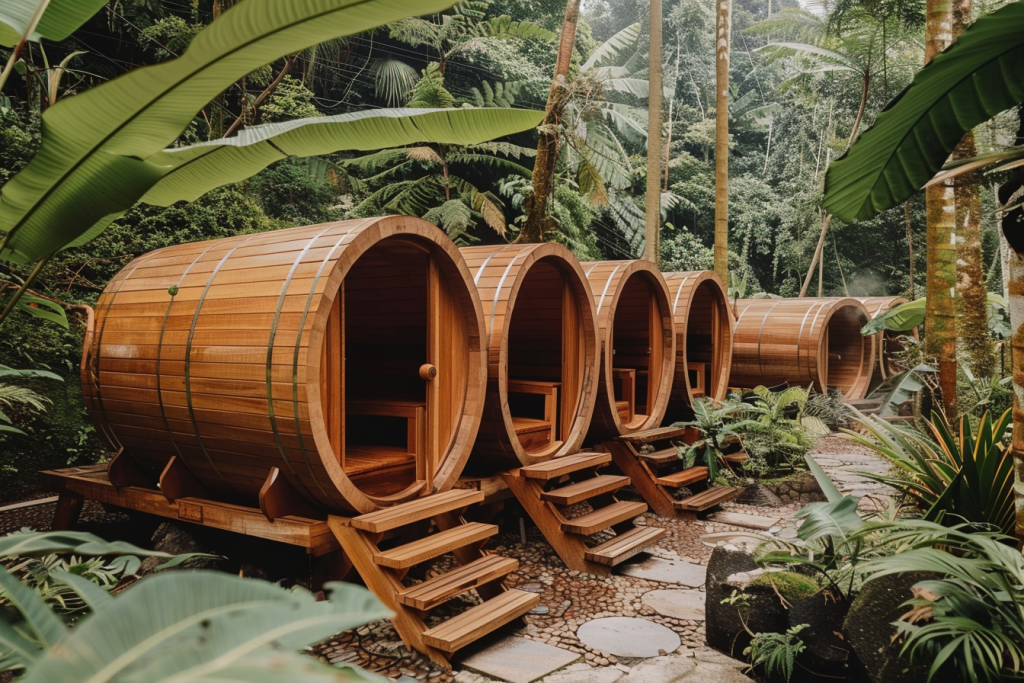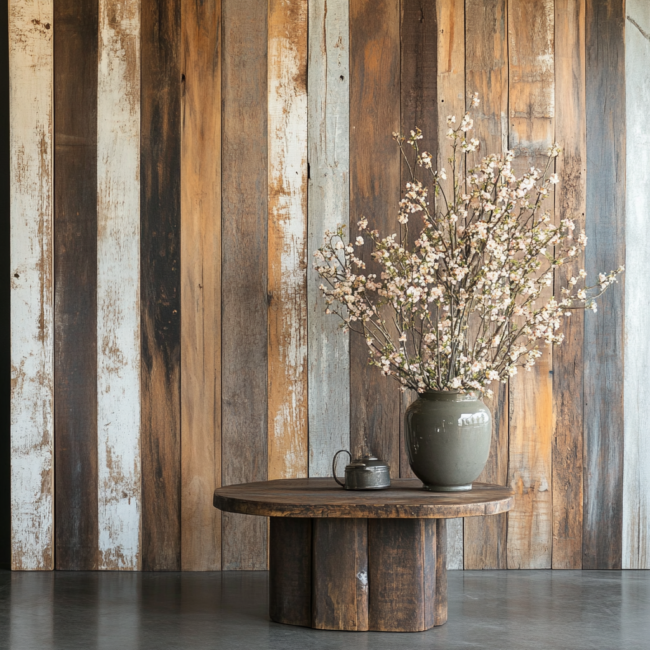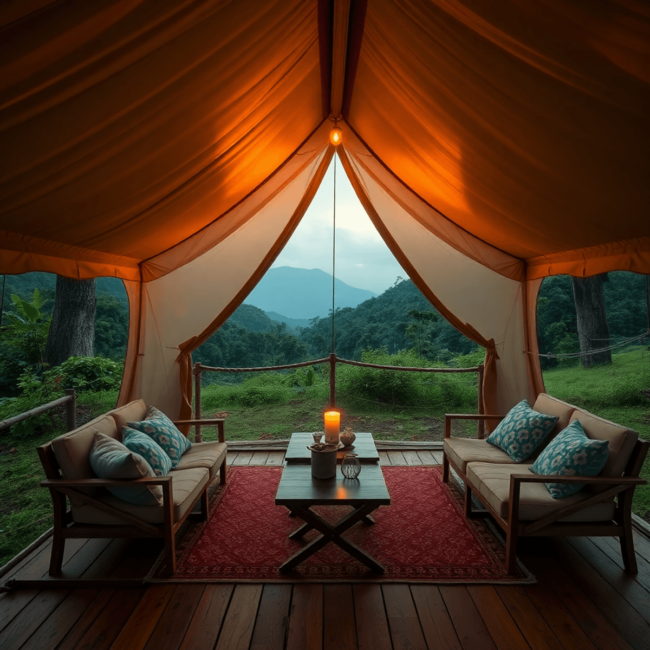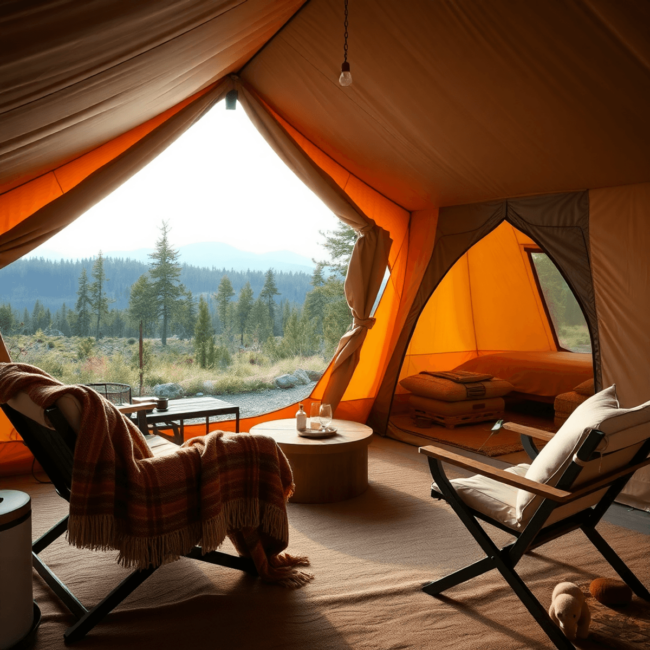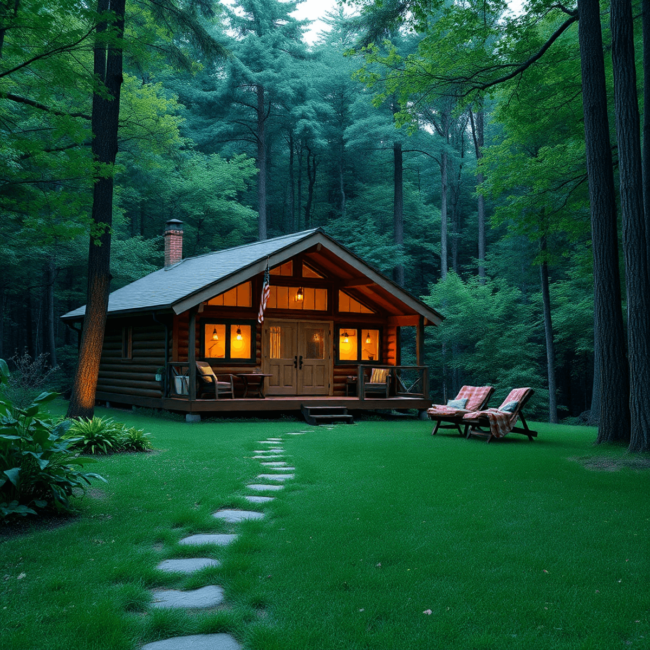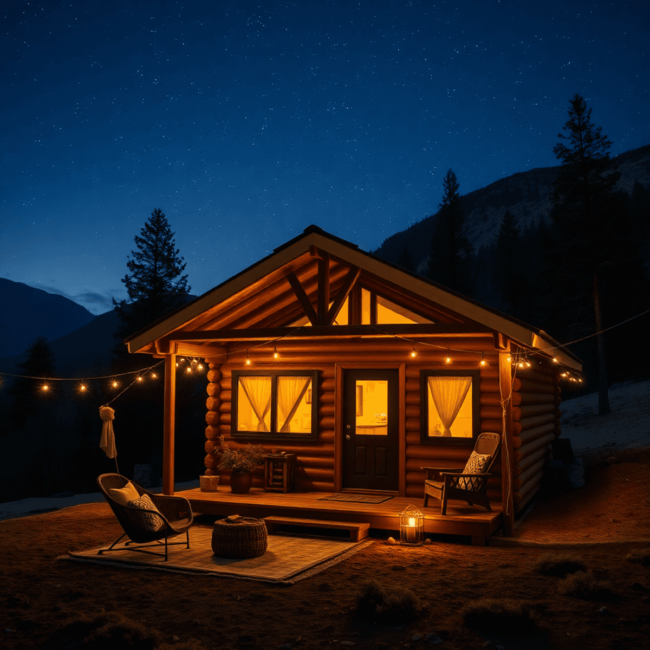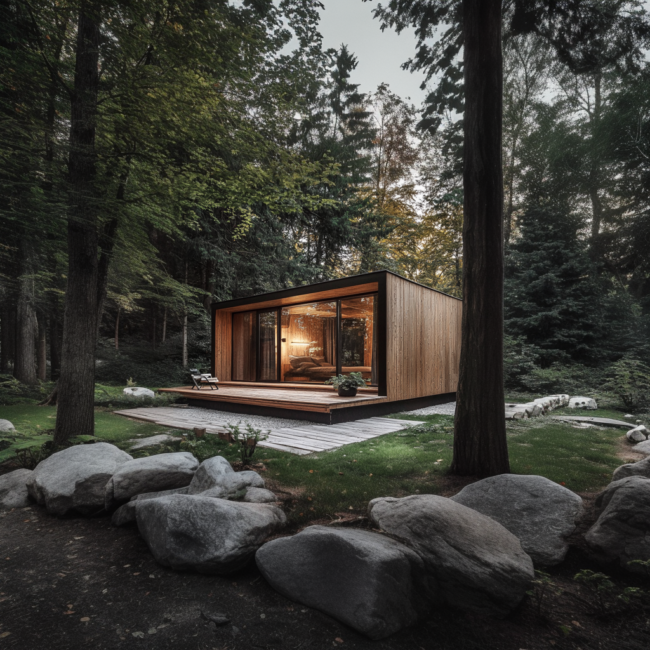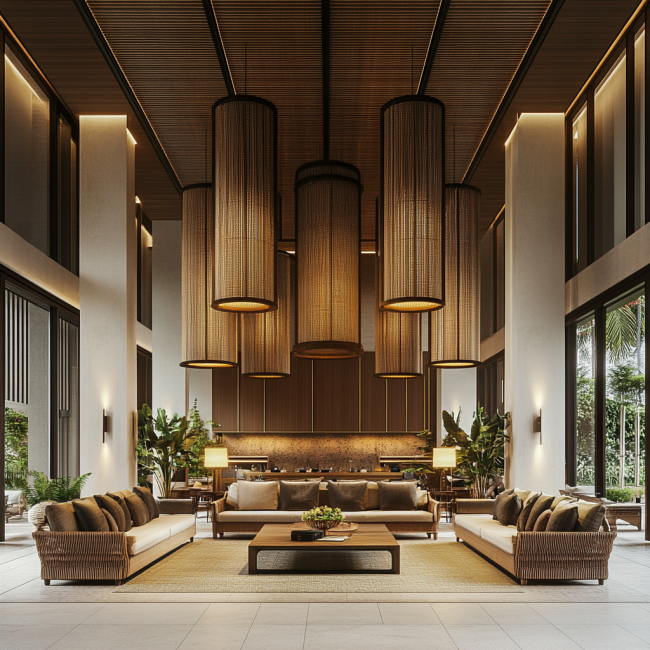Introduction
Barrel saunas are becoming increasingly popular worldwide due to their unique design and health benefits. Usually made in Europe, these saunas are known for their excellent craftsmanship and use of high-quality woods like spruce and cedar. Barrel saunas not only provide a rustic look but also offer an unparalleled sauna experience, making them a favorite among wellness enthusiasts.
The Rise of Indonesian Woodworking Industry
In recent times, there has been a growing trend in the woodworking industry with the rise of manufacturing from Indonesia. This Southeast Asian country, known for its rich heritage in craftsmanship and abundant natural resources, is now emerging as a strong competitor to European producers. Indonesian manufacturers bring a fresh perspective to the market with their diverse selection of wood species and cost-effective production methods.
CH Furnitures, a reputable furniture manufacturing company from Jepara, Indonesia, is expanding into the traditional barrel sauna market. By leveraging Indonesia’s unique advantages, CH Furnitures aims to deliver high-quality, customizable saunas at competitive prices. This shift promises to reshape consumer expectations and broaden the appeal of traditional wooden barrel saunas on a global scale.
1. Diverse Range of Wood Species
Indonesia has an impressive inventory of over 400 unique wood species, offering a broad selection for sauna construction. This variety enables manufacturers to choose from an extensive palette of woods, each with its own distinct characteristics and benefits.
Cost-Effective Alternatives
Traditional European woods like spruce and cedar are popular choices for barrel saunas. However, Indonesia’s diverse range of wood species provides cost-effective alternatives without compromising on quality. Species such as Meranti or Red Balau offer comparable durability and aesthetics at a fraction of the cost found in European wood options, making them attractive options for budget-conscious consumers.
Exotic Appeal
The availability of exotic woods not commonly found in Europe adds to the allure. Woods like Sonokeling (Indonesian Rosewood) and Ulin offer unique grains and colors that can set a sauna apart in the market.These exotic options appeal to niche markets looking for distinctive features and high-quality craftsmanship. The aesthetic appeal of rare wood types can elevate the overall look and feel of traditional barrel saunas.
Versatility in Design
The wide selection allows for more personalized design choices, catering to diverse customer preferences. Whether a client prefers the rich, dark hues of Merbau or the light, airy tones of Jelutong, Indonesian manufacturers can accommodate various tastes.
Many Indonesian wood species are naturally resistant to moisture and pests, essential qualities for sauna environments. This natural resilience ensures longevity and low maintenance, adding extra value for customers.
The plentiful wood resources in Indonesia not only diversify the material options but also cater to different economic needs and aesthetic preferences. This flexibility positions Indonesian manufacturers as competitive players in the global wooden barrel sauna market.
2. Cost-Effective Production
Indonesia’s labor market offers significant advantages for the manufacturing of traditional wooden barrel saunas, particularly when compared to European counterparts.
Comparison of Labor Costs and Minimum Wages
Labor Costs: The minimum wage in Indonesia is substantially lower than in many European countries. For instance, according to recent data, the minimum wage in Indonesia is around $200 per month, whereas in Europe, it can range from $1,000 to $2,000 or more.
Economic Conditions: Favorable economic conditions in Indonesia include lower operational costs and access to affordable raw materials. These factors combine to create an environment where production costs are minimized without compromising quality.
Competitive Pricing
Lower labor costs in Indonesia directly translate to more competitive pricing for traditional barrel saunas:
- Affordable Production: The reduced cost of labor allows manufacturers like CH Furnitures to offer high-quality products at a fraction of the price found in Europe.
- Market Advantage: This cost efficiency enables Indonesian companies to compete effectively on the global stage, providing consumers with premium products that do not break the bank.
Savings in Manufacturing and Assembly Processes
The economic landscape of Indonesia presents various opportunities for cost savings throughout the manufacturing and assembly processes:
- Streamlined Operations: With lower expenses related to wages and overheads, companies can invest more resources into refining their production techniques.
- Efficient Supply Chain: Proximity to abundant natural resources reduces transportation costs and ensures a steady supply of materials because the raw materials are similar to solid wood furnitures and Indonesia is one of the leading furniture exporter worldwide.
- Skilled Workforce: A tradition of skilled craftsmanship means workers can execute complex designs efficiently, ensuring each sauna meets stringent quality standards. Compared to wooden furnitures, saunas are substantially way easier to build because its just planks with no 3rd axis variance.
Indonesian manufacturers harness these benefits to produce traditional wooden barrel saunas that are both high-quality and affordable. This cost-effective production model positions Indonesia as a formidable alternative to European producers.
3. Skilled Craftsmanship Tradition
Indonesia is world-renowned for its rich history in woodworking and craftsmanship, a tradition deeply ingrained in its culture, with skills being passed down through generations. Master craftsmen from regions like Jepara have honed their expertise over centuries, producing intricate wooden furniture that is celebrated worldwide. This legacy seamlessly translates into the production of traditional barrel saunas.
How Traditional Skills Impact Sauna Production
Traditional skills play a pivotal role in producing high-quality saunas. Indonesian craftsmen leverage time-tested techniques to ensure both durability and aesthetic appeal. For example:
- Hand-carving: Each piece is adorned with unique decorative elements, adding an unmatched charm. We can add these cultural carvings as a decorative feature on the exterior of each barrel sauna.
The Unique Indonesian Approach to Craftsmanship
In contrast to European craftsmanship, Indonesian manufacturers bring distinctive techniques and styles to the market. While European producers often prioritize precision and uniformity, Indonesian artisans emphasize artistic expression and individuality. This difference can be seen in:
- Design diversity: Indonesian saunas often feature more varied designs, catering to customers seeking something truly one-of-a-kind.
- Material usage: By utilizing exotic woods not commonly found in European products, Indonesian manufacturers add a unique flair to their creations.
The combination of traditional skills and innovative approaches positions Indonesian manufacturers as formidable competitors in the global sauna market. Their ability to blend artistry with functionality offers customers a product that stands out both in quality and design.
This deep-rooted craftsmanship tradition ensures that saunas from Indonesia are built to last, providing not only a relaxing experience but also a piece of art that enhances any space.
4. Sustainable and Environmentally Friendly Practices
Indonesia’s commitment to sustainable forestry practices is a key part of its woodworking industry. This dedication ensures that the production of traditional wooden barrel saunas meets global sustainability goals. CH Furnitures, a leading company based in Jepara, demonstrates this commitment by following strict environmental standards.
Certifications and Standards
CH Furnitures has obtained the following certifications to showcase their commitment to sustainability:
- Forest Stewardship Council (FSC) Certification: This certification guarantees that the wood used in their products comes from responsibly managed forests that provide environmental, social, and economic benefits.
- SVLK License: The SVLK (Sistem Verifikasi Legalitas Kayu) license is another testament to their commitment. This Indonesian Timber Legality Assurance System ensures that timber products are legally sourced and comply with Indonesian laws.
Comparative Practices
When compared to European standards, Indonesia’s sustainable practices hold up effectively:
- Resource Management: Both regions emphasize the ethical sourcing of materials. However, Indonesia’s tropical climate allows for a faster regeneration rate of certain wood species, making it a viable source for sustainable timber.
- Environmental Regulations: European producers often follow stringent regulations like those set by the EU Timber Regulation (EUTR). Similarly, Indonesia’s SVLK system mirrors these standards by ensuring legality and sustainability in timber production.
Global Contributions
Indonesia’s efforts contribute significantly to global sustainability goals. By employing eco-friendly practices:
- Carbon Footprint Reduction: Responsible forestry practices help sequester carbon dioxide, mitigating climate change impacts.
- Biodiversity Conservation: Sustainable forestry aids in preserving biodiversity by maintaining natural habitats and promoting ecological balance.
5. Flexibility in Customization and Design
Indonesian manufacturers are known for their ability to offer customization options that often exceed those of European manufacturers. This flexibility comes from a long-standing tradition of skilled craftsmanship combined with modern manufacturing methods.
1. Bespoke Designs
The ability to create custom designs is a hallmark of Indonesian woodworking. Manufacturers can craft unique sauna shapes, sizes, and features tailored to specific customer preferences. For instance, saunas can be personalized with intricate carvings or fitted with custom benches and accessories.
2. Unique Features
Indonesian barrel saunas often incorporate features not commonly found in standard European models. These may include exotic wood accents, customized lighting options, or specialized heating elements. Such distinct attributes cater to niche markets seeking exclusive and premium products.
3. Adaptation to Market Trends
The responsiveness of Indonesian manufacturers to international market trends sets them apart. They can swiftly adapt their designs based on emerging consumer demands, ensuring that their products remain relevant and appealing across global markets. For example, eco-friendly designs or minimalist aesthetics can be rapidly integrated into production lines.
CH Furnitures leverages this flexibility by offering a wide array of customization options for its traditional wooden barrel saunas. Customers can choose from various wood types, finishes, and additional features to create a sauna that perfectly matches their vision. This adaptability not only enhances the product’s appeal but also ensures that it meets diverse functional and aesthetic needs.
By prioritizing customization and design innovation, Indonesian manufacturers position themselves as leaders in the global sauna market, capable of delivering high-quality products tailored to meet specific customer requirements. This approach not only broadens market reach but also fosters strong customer loyalty through personalized service and attention to detail.
Conclusion
Manufacturing traditional wooden barrel saunas in Indonesia offers several compelling advantages. Key benefits include:
- Affordability: Lower labor costs and favorable economic conditions result in more competitive pricing compared to European counterparts.
- Diversity: With access to over 400 unique wood species, Indonesian manufacturers offer a broader selection, including exotic woods not typically available in European saunas.
- Craftsmanship: Indonesia’s rich heritage in woodworking ensures high-quality production, leveraging skills passed down through generations to create exceptional saunas.
- Sustainability: Adherence to sustainable forestry practices, as exemplified by CH Furnitures’ FSC and SVLK certifications, highlights Indonesia’s commitment to environmental responsibility.
- Customization: The flexibility in design allows for bespoke creations that cater to diverse customer preferences, adapting easily to international market trends.
Considering these factors, Indonesia presents a viable alternative to traditional European producers. For those seeking affordability, diversity in materials, expert craftsmanship, sustainable practices, and customized designs, Indonesian manufacturers like CH Furnitures stand out as an excellent choice for traditional wooden barrel saunas.
FAQs (Frequently Asked Questions)
What are traditional barrel saunas and where are they commonly manufactured?
Traditional barrel saunas are cylindrical wooden structures designed for sauna bathing. They are popular worldwide, particularly in Europe, where they have been traditionally manufactured.
How does the variety of wood species in Indonesia benefit sauna construction?
Indonesia offers over 400 unique wood species, providing a diverse selection for sauna construction. This variety allows for more affordable alternatives to European woods like spruce or cedar and enables the use of exotic woods that appeal to niche markets.
Why are Indonesian barrel saunas more cost-effective compared to European ones?
Lower labor costs and minimum wages in Indonesia contribute to more competitive pricing for traditional barrel saunas. Additionally, favorable economic conditions lead to potential savings in manufacturing and assembly processes.
What distinguishes Indonesian craftsmanship in sauna production?
Indonesia has a rich heritage in woodworking and craftsmanship, with traditional skills passed down through generations. This contributes to high-quality sauna production, showcasing unique techniques and styles that differ from European craftsmanship.
How do Indonesian manufacturers ensure sustainable practices in sauna production?
Indonesian manufacturers, such as CH Furnitures’s factory in Jepara, adhere to sustainable forestry practices and hold certifications like FSC and SVLK. These practices align with global sustainability goals and can be compared favorably with European standards.
What customization options do Indonesian sauna manufacturers offer?
Indonesian manufacturers provide greater flexibility in customization compared to their European counterparts. They can create bespoke designs and unique features tailored to diverse customer preferences, adapting quickly to international market trends.

